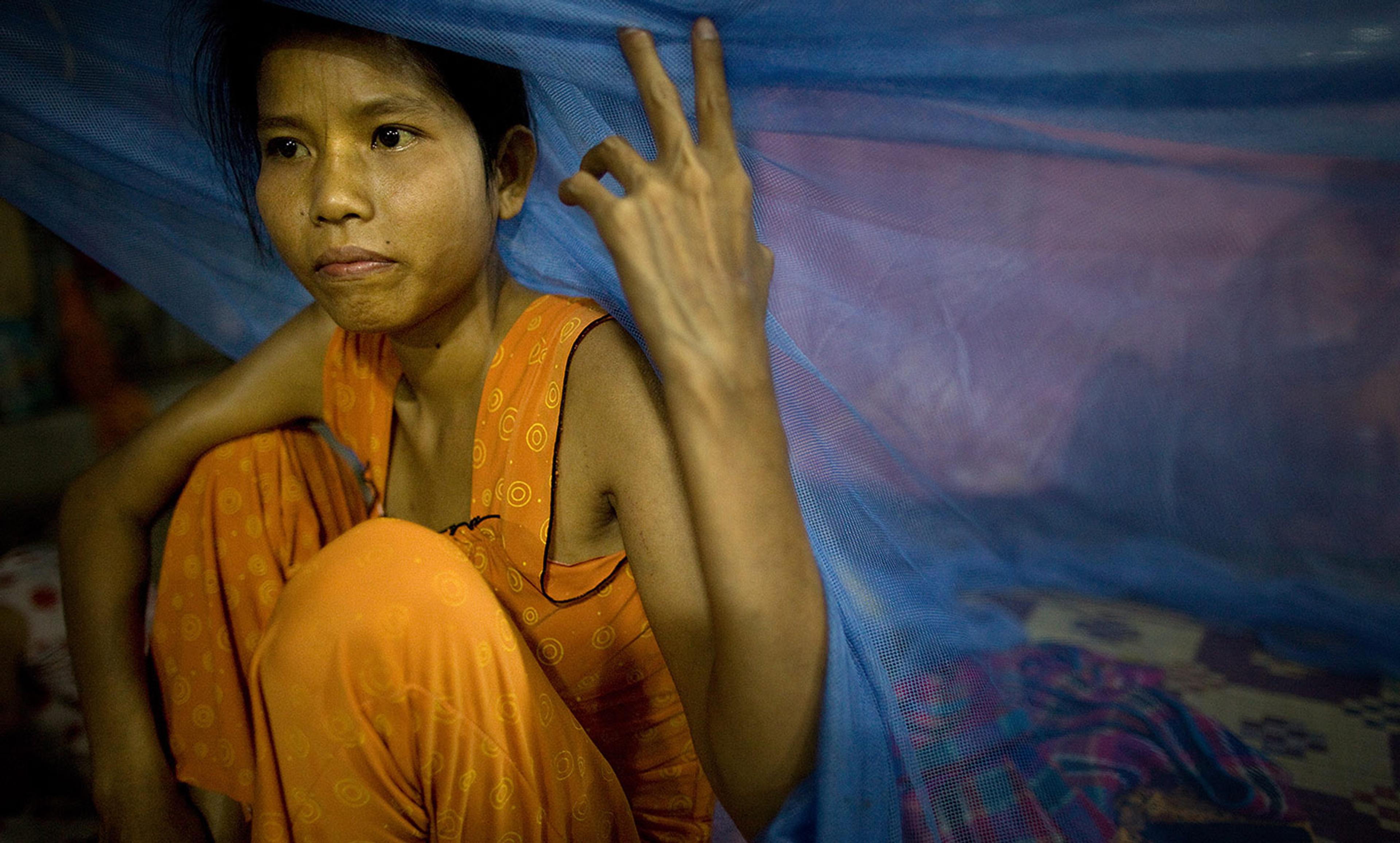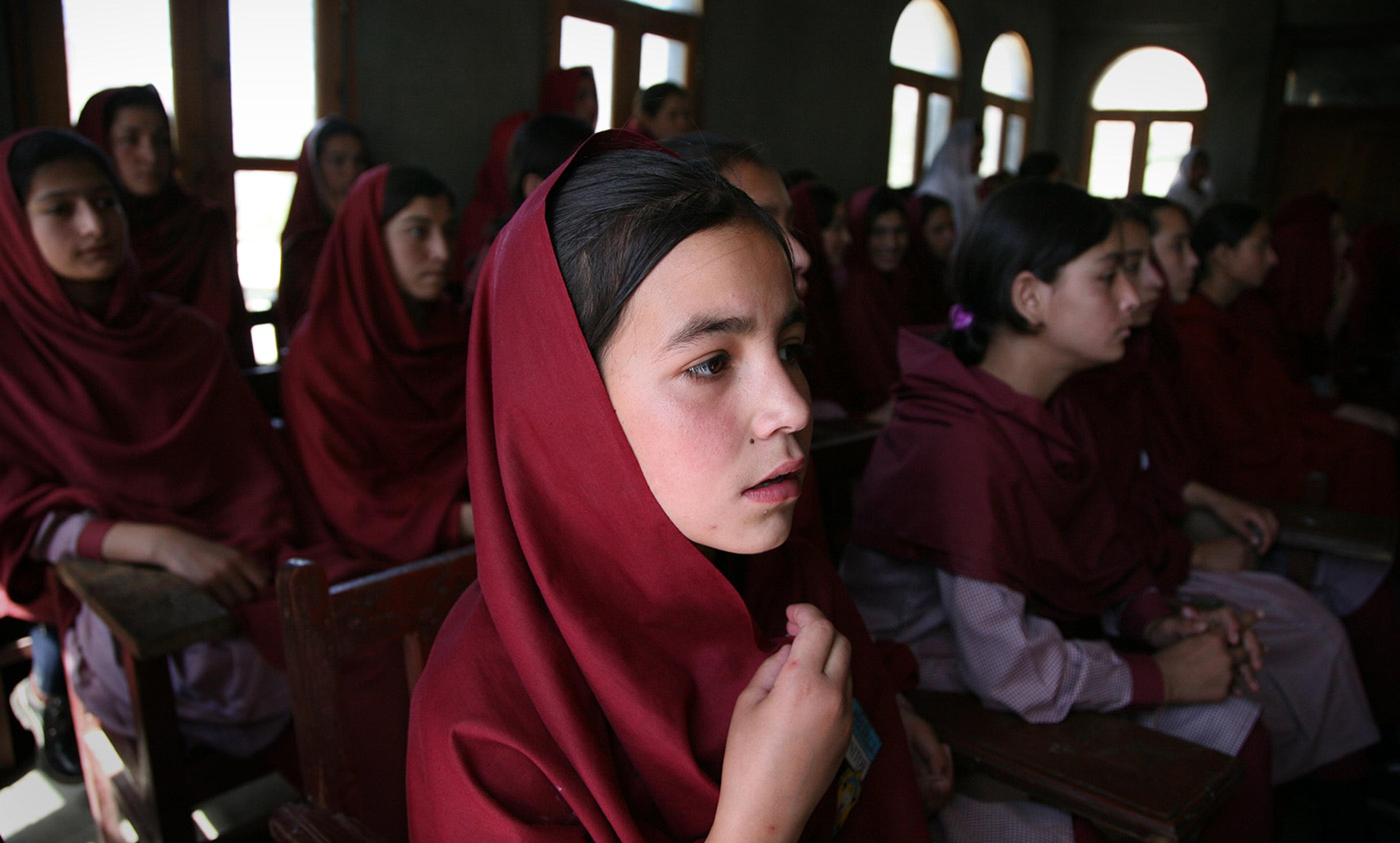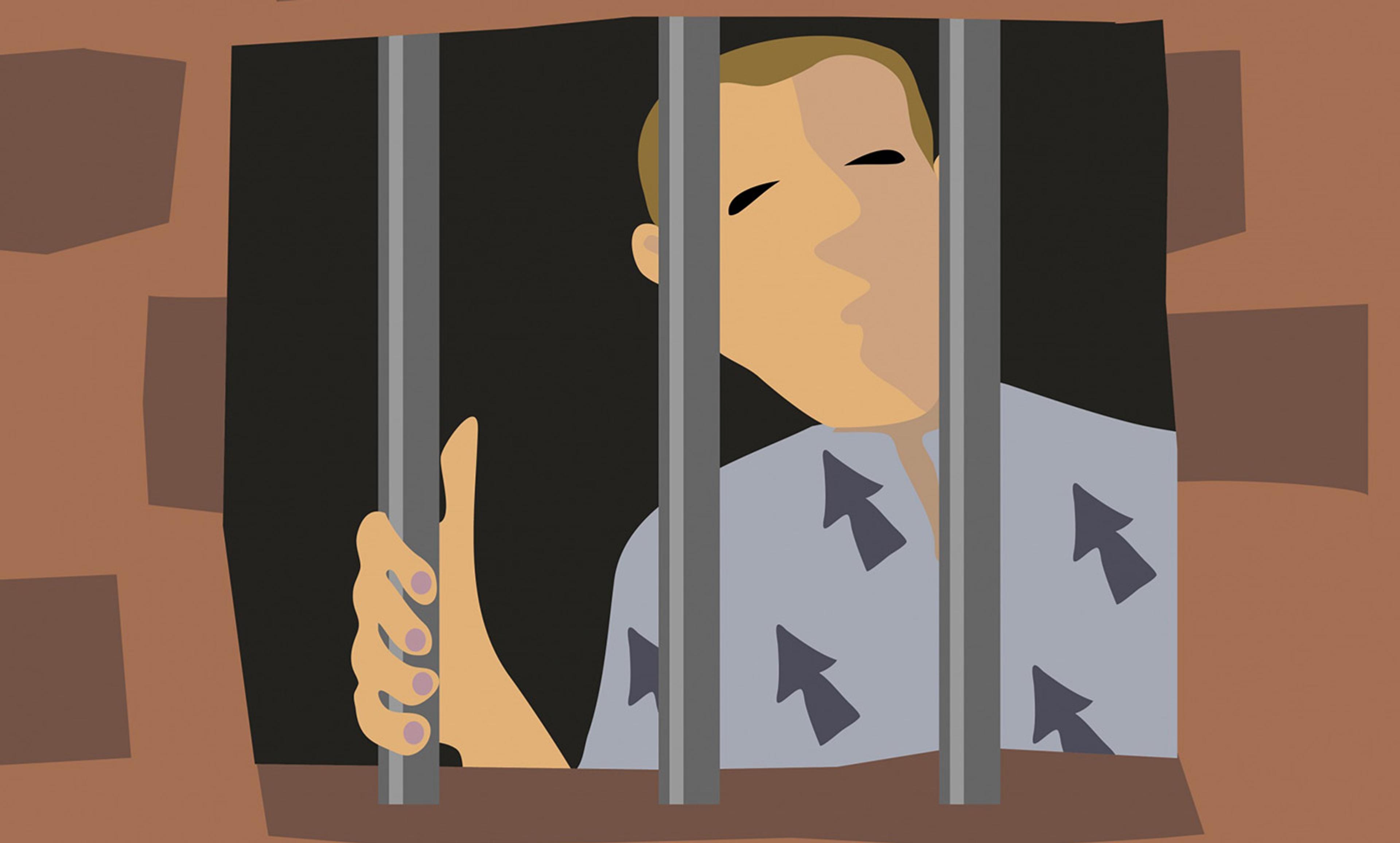A drug user with HIV/AIDS at Korsang, an NGO specialising in the care of addicts in Phnom Penh, 15 February 2010. Photo by Paula Bronstein/Getty
Catalina was in prison for a drug conviction in Guaviare, Colombia. She had been detained for possessing some coca paste – an amount barely sufficient to economically support herself and her two young children for a few weeks. She didn’t know where her children were, or if they were being cared for, and had no idea when she would be released.
In Tajikistan, Anya recently learned that she was HIV positive. She said she had been an injecting drug user for three years, and often used with her partner, who was physically and emotionally abusive. Her partner would often inject himself first and then pass on the equipment to her. Anya suspects this is how she contracted HIV.
Many people see drug use and participation in drug-related trade as a global problem meriting punishment. Unfortunately, poorly designed drug policies can worsen violence rather than diminish it, contribute to epidemics of HIV and HCV (Hepatitis C), and violate human rights. The most common consequences of drug policies, whether focusing on the supply or the demand side, bring disproportionate harm to women and girls.
Catalina, for example, is one of the thousands of women currently imprisoned in Latin America for a drug-related offence. More than 60 per cent of the female prison population in Latin America is incarcerated for drugs-related offences, and of those women up to 95 per cent are single mothers. The incarceration of single mothers is a global trend resulting from harmful policies. While women usually have limited roles in drug trade, for example, as petty smugglers, they are less likely to be offered plea deals, as they lack information considered valuable for prosecution. Once in prison, women are also at a higher risk of violence and sexual abuse by the prison guards. Like Catalina, women in developing countries often become involved in the drug trade due to limited economic opportunities. Their children subsequently become victims too. Criminal prosecutions rarely take into consideration the harm done to families, including children whose sole caregivers have become incarcerated.
Stigma surrounding drug use can also bring great harm. Degrading and hostile attitudes towards women who use drugs strongly deter many from seeking treatment. The United States National Institute on Drug Abuse notes that anxiety, depression and trauma are all common psychological comorbidities in drug use, more common in women than men. Despite strong evidence that drug dependency is a chronic mental-health condition, even health professionals rarely view it as such. Deep societal attitudes, and policies, tend to treat drug use as a moral failing, or behavioural deficiency. For women, drug use jeopardises reproductive and parental rights. In many countries, including the US, pregnant and parenting women who are classified as drug users risk losing custody. As a result, women are more likely to hide any drug dependency, which only perpetuates problems and the public health consequences.
The stigmatisation of women who use drugs has also led to a lack of gender-specific data – desperately needed for research and improving policies. Only 30 countries thus far have reported data on women drug users who inject. What we do know is highly troubling – the rate of HIV in these countries is higher in women (13 per cent) than in men (9 per cent). Like Catalina, Anya’s story is not unique. Women who inject drugs are more likely to contract HIV because of multiple risk factors including intimate partner violence, lack of access to needle exchange programmes, and the common injecting practice of ‘being second on the needle’. A number of women who use also report involvement in sex work to support their drug use, and are frequently victims of violence and abuse. In some countries, Tanzania for example, even possessing a needle is illegal. There, the HIV rate among women injecting drug users is 55-68 per cent higher than for their male counterparts. Furthermore, where harm-reduction programmes are present, they rarely address the needs of women.
It doesn’t have to be this way. Just as health is more than the absence of illness, and peace is more than the absence of war, ending the war on drugs requires non-coercive, comprehensive approaches that empower individuals and communities. Addressing the needs of women requires supporting women’s health and human rights with effective policies. We must understand that drug convictions and policies can have distinct effects on women. Minor roles and non-violent offences need not result in their incarceration. The needs of pregnant and parenting women should be given serious consideration.
Gender-based violence, stigma and discrimination, involvement in sex work, and pregnancy and women with children are all factors that harm-reduction or treatment programmes need to be specifically designed to address. Effective measures should include welcoming environments, women-only hours, childcare, mobile outreach units, legal literacy, and sexual and reproductive health services, as well as preventative education on intimate partner violence and sexual assault. Most of all, decriminalisation of personal possession should be implemented.
As human-rights advocates, we believe in self-determination and empowerment approaches for the most vulnerable populations. The joint United Nations programme on HIV/AIDS notes that people who inject drugs know better than any of us about their experiences and what works best for them. Women who use drugs or have used drugs should be involved in policy reforms, including development, implementation and evaluation. This meaningful participation in policy and programming by women can decrease harms of drug policies, promote empowerment, and improve public health.






